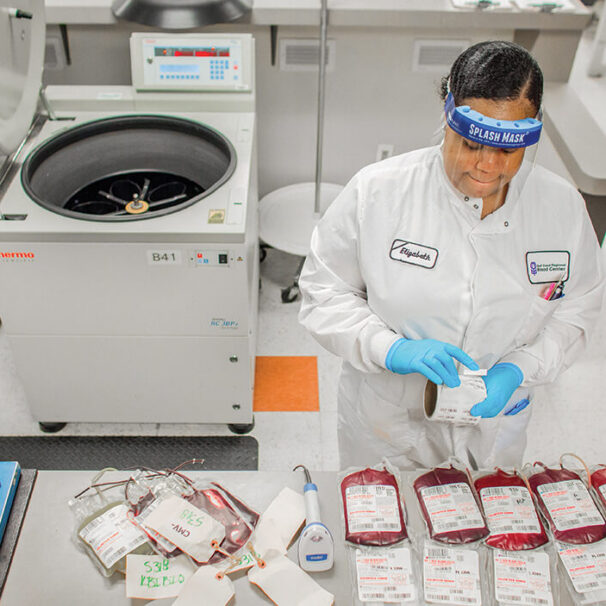HealthProviders DB is a comprehensive database of healthcare providers, including a complete directory of all blood banking specialists and technologists.
Pathology Specialists/Technologists Healthcare Taxonomy Code 246QB0000X
As of today, the following are the total number of Blood Banking Specialists & Technologists nationally, in your State, and near your location.
Select a State below to view the list by State. Additionally, you can narrow the list by city, among other options, from the Filter Panel, which you can open by clicking the vertical ellipses ⋮ in the upper right corner of the app.
Alaska – Alabama – Armed Forces Pacific – Arkansas – American Samoa – Arizona – California – Colorado – Connecticut – District of Columbia – Delaware – Florida – Federated States of Micronesia – Georgia – Guam – Hawaii – Iowa – Idaho – Illinois – Indiana – Kansas – Kentucky – Louisiana – Massachusetts – Maryland – Maine – Marshall Islands – Michigan – Minnesota – Missouri – Northern Mariana Islands – Mississippi – Montana – North Carolina – North Dakota – Nebraska – New Hampshire – New Jersey – New Mexico – Nevada – New York – Ohio – Oklahoma – Oregon – Pennsylvania – Puerto Rico – Palau – Rhode Island – South Carolina – South Dakota – Tennessee – Texas – Utah – Virginia – Virgin Islands – Vermont – Washington – Wisconsin – West Virginia – Wyoming
Medicare
The following are the total number of Blood Banking Specialists & Technologists who accept Medicare in your State, the number who have opted out of Medicare, and the total number excluded from participation in Medicare nationwide.
The diagram below shows all the Blood Banking Specialists & Technologists across the country, represented by blue bubbles. The larger the bubble, the greater the concentration of providers in that area. Red bubbles represent Medicare-excluded providers, with the larger bubbles indicating a higher percentage of excluded providers in that region. You can change the bubble size to be based on exclusions from the Size menu.
What do Blood Banking Specialists & Technologists do?
Blood Bank Specialists/Technologists perform complex tests to determine blood type and match donors with recipients, screen blood for viruses, and manage the collection, processing, and storage of blood products.
Their crucial work ensures the safety and availability of blood for transfusions and helps prevent harmful reactions by verifying blood compatibility.
What they do
Blood Analysis and Compatibility Testing: Conduct tests to identify blood types (blood groups) and screen for antibodies that could cause reactions in recipients.
Disease Screening: Test donor blood for infectious diseases, such as HIV or hepatitis, to ensure patient safety and well-being.
Blood Product Management: Oversee the collection, separation (processing), and storage of blood components, such as platelets and plasma, preparing them for safe use.
Quality Control: Implement and monitor quality control procedures to ensure the safety and efficacy of blood products and equipment.
Adverse Reaction Investigation: Investigate any adverse responses that occur during blood transfusions and work to prevent future complications.
Inventory and Coordination: Manage the inventory of blood products and coordinate with doctors and nurses to ensure the availability of appropriate blood for transfusions.
Record Keeping: Maintain accurate laboratory records and documentation of all tests and processes performed.
Regulatory Compliance: Ensure that all operations within the blood bank comply with safety standards and applicable laws and regulations.
Environment
Hospitals and transfusion centers, Community blood banks, Reference laboratories, and Research facilities.

